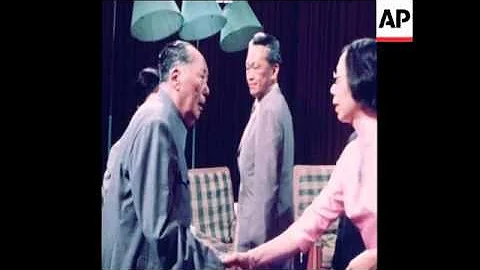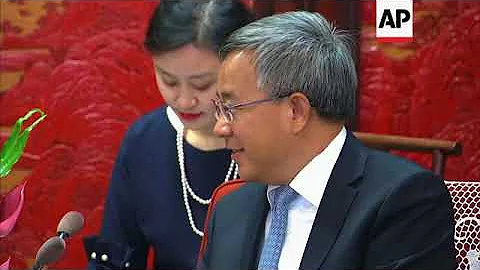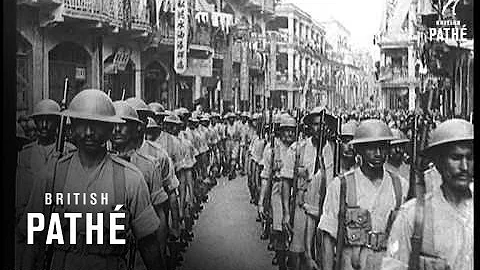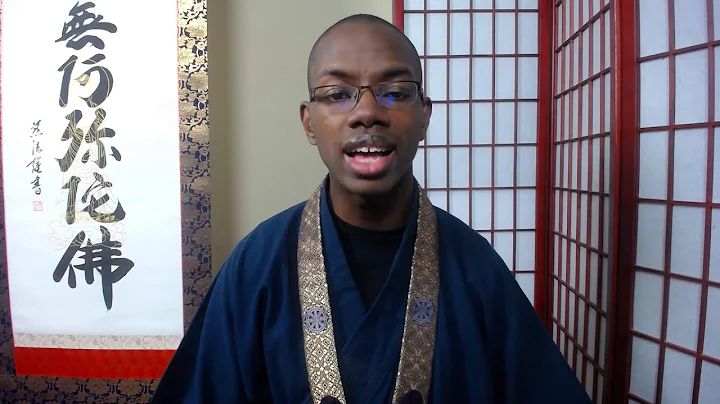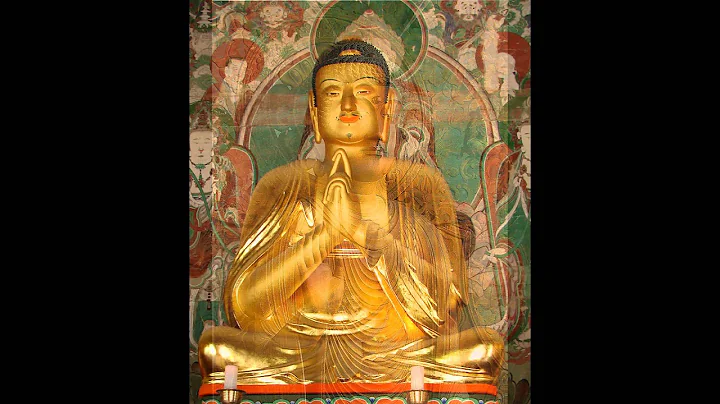In March 1956, Premier Zhou met with a special British man in Beijing. This British man's Chinese name was Ma Kun, and he had been Sun Yat-sen's personal bodyguard.
was invited to come to China with an important mission. At that time, in order to convey the desire for peaceful reunification to Taiwan, the central government used a lot of social relations.
When Ma Kun was about to visit Taiwan, Premier Zhou also asked him to say hello to Sun Yat-sen's only son Sun Ke, and said: "We cannot let Mr. Sun Yat-sen's son live in exile abroad for a long time. The Chinese government still Welcome Mr. Sun Ke to return to the country. "
This sentence evokes the past of the "Prince" in the Republic of China.

Sun Ke
Sun Ke's special identity
Sun Ke is the only male child born to Mr. Sun Yat-sen and his first wife Mrs. Lu Muzhen.
He was born on October 20, 1891. He was exposed to many revolutionary ideas from his father Sun Yat-sen since he was a child. Later, Sun Yat-sen launched a revolutionary movement in Hawaii, and Sun Ke came to Honolulu to live with his grandmother.
Under Sun Yat-sen's ardent care, Sun Ke achieved excellent academic performance. After graduating from Honolulu High School, he obtained a Bachelor of Arts from the University of California, Berkeley, a Master of from Columbia University, and an Honorary Doctorate of Laws from Columbia University.
The developed United States could provide him with good employment prospects, but Sun Ke chose to follow in his father's footsteps. Later experience proved that his choice was a failure.

Sun Ke
In 1907, Sun Ke joined the Alliance and served as the editor of "Free News" and "Loud Weekly".
In 1917, Sun Yat-sen returned to China and launched the law-protection movement . Sun Ke also returned to Guangzhou and served as secretary of the Extraordinary Congress Senator and editor of the Guangzhou Times. During this period, he published "Urban Planning Theory" and other books.
As a great man, Sun Yat-sen never thought of taking special care of his son. It was Kuomintang veteran Liao Zhongkai who suggested that Sun Ke could be the mayor of Guangzhou after studying national urban planning.
was not allowed at first, but on the recommendation of another veteran Hu Hanmin, Sun Yat-sen appointed Sun Ke as the first mayor of Guangzhou, and later also served as the supervisor of Guangzhou's river management.

Sun Yat-sen
Sun Ke built nearly 26 kilometers of modern roads in just over a year. He also improved the city environment in Guangzhou, promoted modern education, strengthened social security, etc. He is still very competent as a technical official.
But he soon showed some character flaws. During a transportation task, he failed to complete the task satisfactorily. Hu Hanmin insisted on distinguishing public and private affairs and reported the matter to Sun Yat-sen.
Sun Yat-sen was very angry when he learned about it and reprimanded Sun Ke. However, after Sun Ke came out of Sun Yat-sen's office, he immediately found Hu Hanmin, and the two started fighting, and they became enemies from then on.

Sun Yat-sen
Hu Hanmin once commented on Sun Ke, saying that because he was a veteran of the Tongmenghui, he had a revolutionary temper; because he grew up in a foreign country, he had a foreign temper; because he was Sun Yat-sen's only son, he had a young master's temper. Sometimes he only loses one temper, sometimes he loses two kinds of temper, and sometimes he loses all three kinds of temper. It can be said that he is extremely angry.
In 1925, Sun Yat-sen died of liver cancer and died in Beiping. Sun Ke couldn't help but fall into the whirlpool of politics.
Some people believe that after Sun Yat-sen passed away, Sun Ke should take over Sun Yat-sen's banner and continue to lead the revolution; but most people still believe that Sun Ke lacks ability and moral integrity, and Hu Hanmin's opposition is particularly fierce.

Sun Ke
In the subsequent National Government election, Sun Ke ran against Wang Jingwei for the position of top leader. As expected, Sun Ke, who had no understanding of officialdom and sophistication, lost to Wang Jingwei.
He was very angry, but had no choice but to become a member of the newly established National Government and Minister of Communications under the arrangement of Wang Jingwei.
Facts have once again proved that Sun Ke is only suitable to be a technical official. He did a successful job in the Ministry of Transport, and later served as Minister of Railways, Vice President of the Examination Yuan, and President of Jiaotong University.
He promoted the concept that transportation administration and transportation education complement each other, believed that talent training was the focus of developing railway construction, and implemented the development strategy of "uniting ministries, roads, and schools into a coherent whole". He is considered one of the founders of China's modern transportation industry. .

Wang Jingwei
Political stance is capricious
However, once Sun Ke was in a high position and took over the overall work, he immediately became mediocre.
In 1931, he became the Executive Dean, but was soon forced to resign due to the financial crisis. On the more important issue of political stance, he behaves like a playful and fun-loving child.
In May 1931, the detention of Hu Hanmin by Chiang Kai-shek triggered an internal split within the Kuomintang. Wang Jingwei, Sun Ke and others established the Guangzhou National Government to fight against Chiang Kai-shek's Nanjing government.
After the September 18th Incident, in response to Chiang Kai-shek's policy of "pacifying the country before resisting foreign aggression", the Guangzhou government put forward the slogan of actively resisting Japan, which put a lot of pressure on Chiang in public opinion.
All walks of life rushed to mediate the conflicts between Nanjing and Guangzhou. The Guangzhou National Government insisted on releasing Hu Hanmin and Chiang Kai-shek from power as a condition for peace negotiations.

Hu Hanmin
With the mediation of all parties, Chiang Kai-shek resigned, but he insisted that Sun Ke come forward to form the cabinet. After Sun Ke came to power, he resigned within a month due to the extremely difficult financial difficulties of the government. This is exactly Chiang Kai-shek's conspiracy to retreat in order to advance.
After Sun Ke lost his use value, Chiang Kai-shek returned to power in January 1932 with the support of Wang Jingwei.
Sun Ke became the President of the Legislature and vigorously advocated constitutionalism. On various occasions, he proposed the political idea of ending political training and accelerating the implementation of constitutional government. Naturally, he was ridiculed by Chiang Kai-shek.
As a result, Sun Ke and Chiang Kai-shek gradually drifted away, and his attitude towards our party underwent a major change.

Chiang Kai-shek
On the eve of the Anti-Japanese War in February 1937, Sun Ke made a joint proposal with Soong Ching Ling at the Second Plenary Session of the Fifth Central Committee of the Kuomintang, calling for the restoration of the three major policies of the United Russia and the Communist Party to support agriculture and industry.
You must know that around 1927, he publicly supported Chiang Kai-shek's "Qing Communist Party". But by this time, he had a premonition that continuing to follow Chiang Kai-shek would be a dead end, so he quickly changed his attitude and publicly called for recognition of the legitimate status of the CCP and opposed the continuation of the civil war.
Therefore, he was regarded as a pro-Soviet faction. In 1938, as a representative of the Chinese government, he negotiated with the Soviet Union and signed the "Sino-Soviet Non-Aggression Treaty" and the "Sino-Soviet Commercial Treaty", making certain contributions to the Anti-Japanese War.
However, in the late period of the Anti-Japanese War, Japan's defeat was certain, and the trend of the Soviet Union and the United States becoming two levels after the war was very obvious. Sun Ke suddenly became a pro-American faction.

Soong Ching Ling
At the end of 1944, Sun Ke published an article in the " New York Times ", talking about his desire to realize the ideal of the British and American democratic system in China.
After the victory of the Anti-Japanese War, he served as vice chairman and legislative president of the National Government. When formulating the draft constitution, he wanted to make Chiang Kai-shek a virtual head of state, and he would hold real power as the chief executive.
But in front of the cunning and cunning Chiang Kai-shek, these actions of his were nothing more than tricks.
In the second half of 1946, with the rapid changes in the domestic political environment, Sun Ke made a 180-degree turn and stopped promoting constitutionalism. Instead, he supported Chiang Kai-shek's civil war policy. Therefore, he was included in the list of war criminals by our party.
Chiang Kai-shek naturally reciprocated the favor and wanted to use Sun Ke's special status to increase his legitimacy.

Sun Ke
In 1948, Chiang Kai-shek convened the Puppet National Congress and was elected as the first president of the National Government, and supported Sun Ke's candidacy for vice president.
And the leader of the Guangxi clique Li Zongren was also interested in the vice president. At that time, including Chiang Kai-shek, they all believed that Sun Ke was sure to win, but the result was a surprise.
On the one hand, Li Zongren controlled an elite armed force and spent a lot of money, using 1,000 gold bars to move up and down; on the other hand, Sun Ke was criticized by the "National Salvation Daily" for protecting his second wife, Lanni, , and bending the law for personal gain. Promote.
As you can imagine, after four rounds of elections, Li Zongren finally defeated Sun Ke and was elected as the Vice President of the National Government. After
failed to run for vice president, Sun Ke once again served as the executive president who had no real power, and because of this incident, he broke up with Lanni, which really cost his wife and his army.

Li Zongren
Living in the United States and Late View of Sangyu
As the People's Liberation War was victorious, Sun Ke joined forces with his former opponent Li Zongren to save the Kuomintang's rule, forced Chiang Kai-shek to step down, and advocated peace talks with our party.
However, Chiang Kai-shek "retired without giving up" and continued to obstruct the peace talks as the president of the Kuomintang. The purpose of Sun Ke and others was also to delay the war, and it was obvious that the talks could not be reached.
On the eve of our army's crossing of the Yangtze River in March 1949, Sun Ke resigned as Executive President and came to Hong Kong and lived here for two years. He was disheartened and had no interest in politics at all, but his reputation was so well-known that a large number of Kuomintang officials still came to visit him every day and even borrowed money from him.
But Sun Ke didn’t have any money, so he had to give them 10 Hong Kong dollars each time. Later, he couldn’t afford it anymore, so he had to change it to 5 Hong Kong dollars.

Sun Ke
Since Sun Ke was a veteran figure of the Kuomintang, more and more people came to fight against the autumn wind. He couldn't bear the disturbance, so in 1950 he went to France to join his old friend Fu Bingchang. France was an unfamiliar place, and it was not a long-term solution, so Sun Ke and his wife went to the familiar United States in 1952 to join their eldest daughter, Sun Suiying.
Sun Ke was not good at managing money. Even the travel expenses abroad were raised by selling real estate. During his time in the United States, he was in poverty and could only rely on the support of his children to survive. The family can only live frugally on weekdays. Once they ate sweet potatoes and vegetables for meals, he spent his free time reading, reading newspapers and chatting to pass the time.
According to declassified files in recent years, Sun Ke asked Chiang Kai-shek for help many times, but Chiang Kai-shek was afraid that he would threaten Chiang Ching-kuo to take over, so he only paid lip service.
In 1956, in order to strive for cross-strait peace talks, Premier Zhou met with Sun Yat-sen's bodyguard Ma Kun. Ma Kun and Sun Ke had a relationship.
At the welcome banquet, Premier Zhou conveyed to him his willingness to welcome Sun Ke back to China. Unfortunately, Sun Ke did not have any reply and failed to return home like Li Zongren.

Zhou Enlai
A stranger in a foreign land, he misses his family even more during the festive season. In 1965, Sun Ke was 75 years old. His long years of wandering made him want to return to China. After Sun Ke's old acquaintance understood his wish, he began to actively engage in activities. The Taiwan authorities were beset with internal and external difficulties and needed to release some goodwill to the outside world, so they extended an invitation to him.
On October 29, 1965, Sun Ke arrived in Taiwan and was warmly welcomed by the delegation led by Chiang Ching-kuo at Taipei Songshan Airport.
At this time, Jiang Jingguo was firmly in his position, and Sun Ke was no longer a threat, so all the unhappiness in the past disappeared.
Sun Ke also made it clear that he would no longer enter politics, so Chiang Kai-shek arranged for him to serve as a senior counselor in the President's Office, dean of the Examination Yuan and other honorary positions.
Sun Ke enjoyed his old age in Taiwan. He died of illness in Taipei Veterans General Hospital on the afternoon of September 13, 1973.
Chiang Kai-shek issued a funeral order, held a grand funeral for him, and delivered a eulogy in person: "Revolutionary hero, magnificent in ability, far-sighted talent, diligently practicing the Three People's Principles, and profound academic attainments..."

Sun Ke
For Sun Ke, this is For a figure in modern history, the coffin may not be sealed.
Sun Ke's life is actually a microcosm of modern China's pursuit of national development. He has the aura of the only son of the "Father of the Nation" and admires the British and American systems in politics, but he knows nothing about China's national conditions and cannot satisfy the country's needs. Real needs.
Therefore, at every major historical juncture, he is always wavering and full of contradictions and entanglements.
This also has reference significance for us today. Intellectuals who lack social practice should still do their job well and must not follow others' opinions and become a short-term politician.
References
Gao Hua. "The Changing Sun Ke". Hong Kong Zhonghe Publishing Co., Ltd.. 2012
Xu Ping. "Chiang Kai-shek's Civil Ministers and Generals". World Knowledge Publishing House. 2007
He Ming. "The Forty-three War Criminals of the Kuomintang" The Final Ending. Chinese Communist Party History Press.2008
